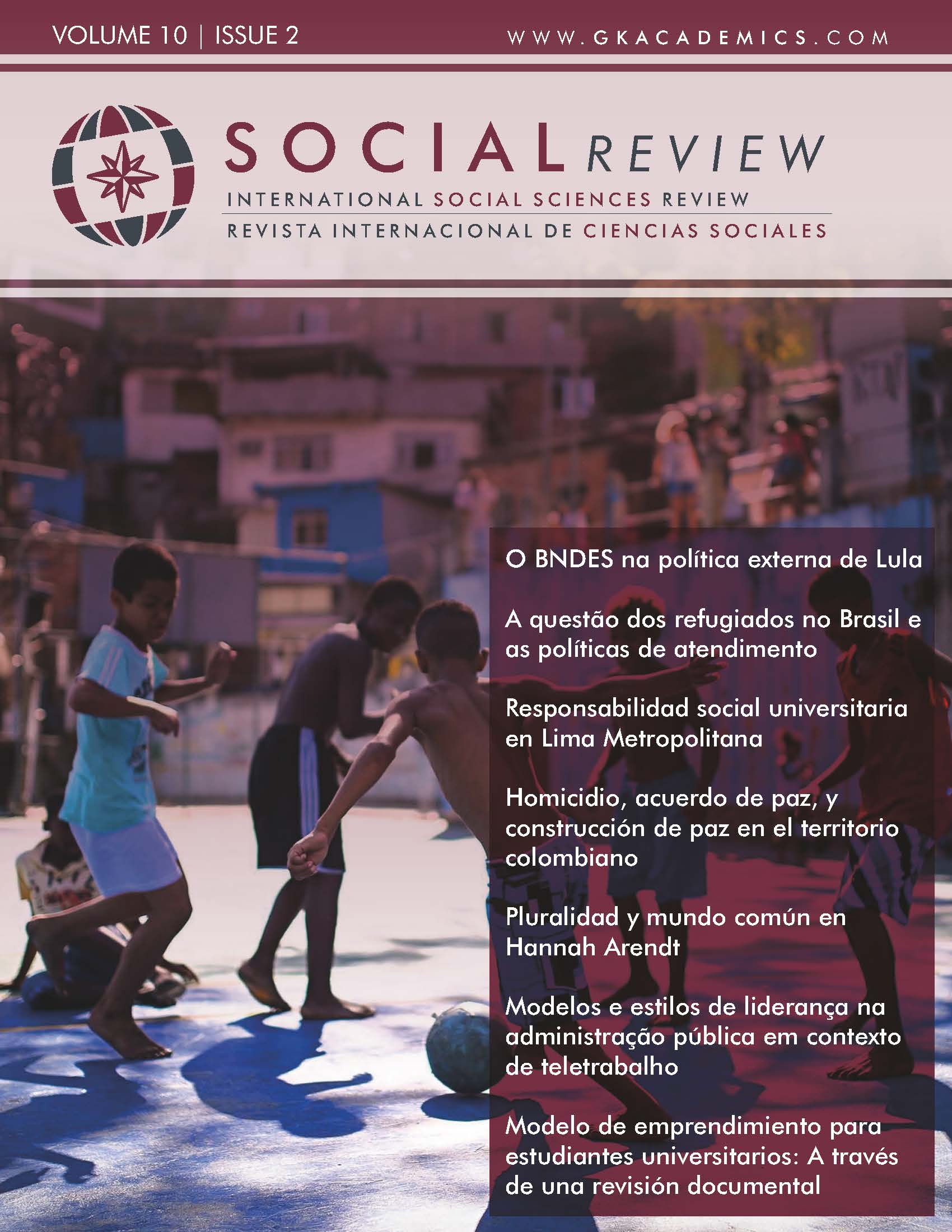Modelos e estilos de liderança na administração pública em contexto de teletrabalho
DOI:
https://doi.org/10.37467/gka-revsocial.v10.2636Palabras clave:
Liderança, Teletrabalho, Administração Pública, PortugalResumen
O principal objetivo da presente pesquisa é analisar o modelo ou estilo de liderança que pode ser mais eficaz em contexto de teletrabalho na administração pública. Neste enquadramento a pergunta de partida ou questão de pesquisa é: qual o modelo (ou modelos) e estilo de liderança mais adequado, para a administração pública, em regime de teletrabalho. A metodologia utilizada foi a qualitativa com base numa revisão da literatura e os resultados evidenciam que uma liderança transformacional, servidora, situacional, democrática e com representatividade ativa de género, constitui a forma mais eficaz na implementação de programas de teletrabalho na Administração Pública.
Citas
Bae, K., Lee, D. y Sohn, H. (2019). How to increase participation in telework programs in U.S. Federal Agencies: examining the effects of being a female supervisor, supportive leadership, and diversity management. Public personnel management, 48(4), 565-583.
Dahlstrom, T. (2013). Telecommuting and leadership style. Public Personnel Management, 42(3), 438-451.
Eikenberry, K. y Turmel, W. (2018). The long-distance leader: rules for remarkable remote leadership. Berrett-Koehler Publishers.
Gibson, J. et al. (2002). Telecommuting in the 21th century: benefits, issues, and a leadership model which will work. The journal of leadership studies, 8(4), 75-86.
Glyn M. y Dejordy, R. (2010). Leadership through an organization behavior lens. Handbook of leadership: theory and practice. Harvard Business Press.
Goleman, D. (2000). Leadership that gets results. Harvard business review, 78(2), 4-17.
Goleman, D. (2005). Emotional intelligence. Bantam Dell.
Kelley, E. y Kelloway, K. (2012). Context matters: testing a model of remote leadership. Journal of leadership & organizational studies, 19(4), 437–449.
Kwon, M. y Jeon S. (2018). Do leadership commitment and performance-oriented culture matter for federal teleworker satisfaction with telework programs? Review of public personnel administration, 40(1), 36–55.
Mahler, J. (2012). The telework divide: managerial and personnel challenges of telework. Review of public personnel administration, 32(4). 407-418.
McPheat, S. (2010). Leadership skills. MDT Training & Ventus Publishing.
Moussa, M., McMurray, A. y Muenjohn, N. (2018). Innovation and leadership in public sector organizations. Journal of management research, 10(3), 14-30.
Neufeld, D., Wan, Z. y Fang, Y. (2010). Remote Leadership, Communication Effectiveness and Leader Performance. Group decision & negotiation, 19(3), 227.246.
Sacavém, A. et al. (2019). An integrative literature review on leadership models for innovative organizations. Journal of reviews on global economics, 8, 1741-1751.
Saleem, H. (2015). The impact of leadership styles on job satisfaction and mediating role of perceived organizational politics. Procedia: Social and behavioral sciences, 172, 563-569.
Van Wart, M. (2003). Public-Sector Leadership Theory: An Assessment. Public administration review, 63(2), 214-228.
Virtanen, P. y Tammeaid, M. (2020). Developing public sector leadership: new rationale, best practices and tools. Springer Nature Switzerland.
Descargas
Publicado
Cómo citar
Número
Sección
Licencia
Aquellos autores/as que publiquen en esta revista, aceptan los términos siguientes:
- Los autores/as conservarán los derechos morales sobre la obra y cederán a la revista los derechos comerciales.











